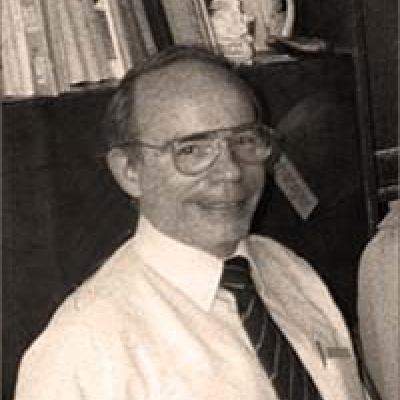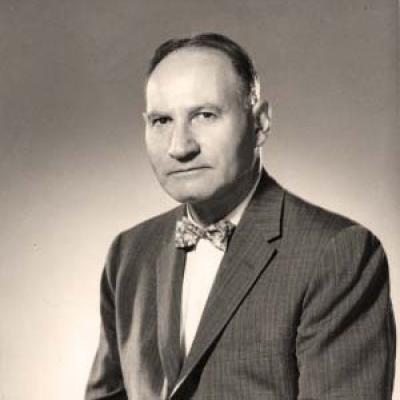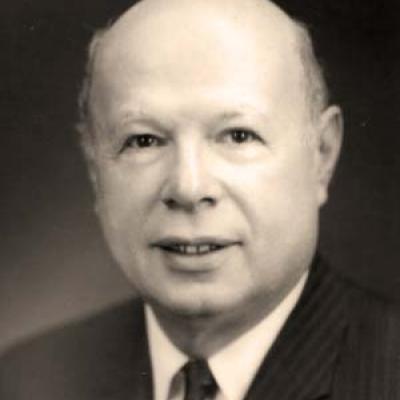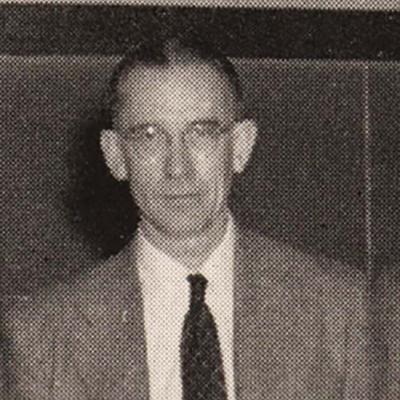Celebrating Myriam Sarachik
Join us for a special event on Oct 31st, 2023.
More details at this page:
Herman Z. Cummins Lectures
Every year, the physics department hosts a special lecture in honor of Herman Cummins, Distinguished Professor of Physics at City College from 1974 to 2004.
Prof. Cummins was an experimental physicist at City College and a member of the National Academy of Sciences. He joined the Physics Department of City College in 1974 as a Distinguished Professor of Physics, and immediately established his laser spectroscopy laboratory as one of the leading research sites in the world. His cutting-edge investigations cover: statistics of radiation-matter interactions, as well as elastic, quasi-elastic and inelastic light scattering (Rayleigh, Brillouin and Raman). His many seminal studies have elucidated the physical mechanisms in diverse areas: paraelectric ferroelectric phase transitions, commensurate-incommensurate transitions, exciton and polariton formation and dynamics, liquid glass and colloidal systems, and many more. Herman Cummins received numerous honors for his scientific contributions. He was elected a Member of the US National Academy of Sciences (1996); a Fellow of the American Academy of Arts & Sciences (2001),and to the Johns Hopkins Society of Scholars (2010). He was awarded the Docteur es Sciences, honoris causa, by the Universite de Paris, and a Senior Fellowship by the Humboldt Foundation. Earlier he received the Alfred P. Sloan Research Fellowship (1969-72),Guggenheim Fellowship (1984), and was elected Fellow of the American Physical Society and the New York Academy Sciences.
Past Speakers
Vahid Sandhoghdar
Max Plank Institute, Erlangen
FALL 2020
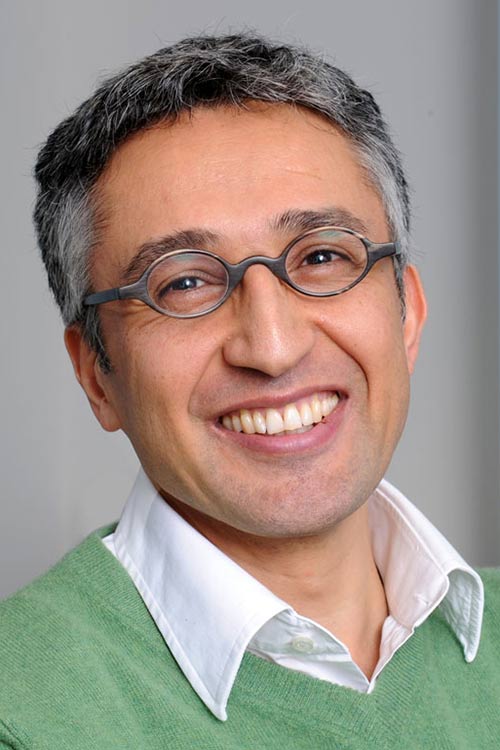
Prof. Vahid Sandoghdar
Spring 2019: Joerg Wachtrup
Nanoscale quantum sensing
Spring 2017: Charles Marcus
Semiconductor-Superconductor Hybrids forTopological Quantum Computing
Spring 2015: Steven Chu
Microscopy 2.0 plus Energy and Climate Change
Spring 2014: Albert J. Libchaber
From bacteria to artificial cells,The problem of self reproduction
Spring 2013: Wolfgang Ketterle
Superfluid gases near absolute zero temperature
Mark W. Zemansky Lecture
Upcoming
2023: Clifford V. Johnson
Wigner Meets 't Hooft Near the Black Hole Horizon
2020: CANCELED
Past Speakers
2018: Angel Rubio
Photons and matter cooperate: new states of matter from a novel first principles QEDFT formalism
2016: S. James Gates, Jr.
L’arte della Fisica
2014: Steven E. Koonin
Adventures in Urban Informatics: Lights,Phones, Sewers, Taxis
2011: Anton Zeilinger
Quantum Communication, Quantum Computation and Quantum Simulation with Entangled Photons
This chair was established in honor of Mark W. Zemansky, Professor of Physics at the City College of New York. He co-authored University Physics with Francis W. Sears.
“When the first edition...appeared in 1949, it was revolutionary among calculus-based physics textbooks in its emphasis on the fundamental principles of physics and how to apply them. The success of University Physics with generations of students and educators throughout the world is a testament to the merits of this approach.”
(Hugh D. Young and Roger A. Freedman, University Physics).
In 1956, The American Association of Physics Teachers awarded the Oersted Medal to Mark W. Zemansky in recognition of notable contributions to the teaching of physics. The CCNY Physics Department annually awards The Zemansky Introductory Physics Prize to outstanding students in Physics 20700 and 20800.
Michael Lubell is The Mark W. Zemansky Professor Physics. The Zemansky Chair was previously held by Distinguished Professor Daniel Greenberger and by Professor Seymour J. Lindenbaum.
Henry Semat Lecture
This lecture is sponsored by the Henry Semat Chair which was established in memory of Henry Semat, a physics professor at the City College of New York for over 45 years. The Henry Semat Professor of Physics is Professor Michio Kaku
Upcoming
April 26, 2023: Dr. Luis Alvarez-Gaume
"News from the Cosmos: the Unsettling Universe"
Past Speakers
2018: Glennys Farrar
Could Dark Matter be Made of Quarks?
2011: Roman Jackiw
Fractional charge and Majorana excitations
The Lawrence Wills Lectures
The Lawrence Wills Lectures are supported by The City College Fund in memory of Professor Lawrence Wills, who joined the CCNY Physics Department in 1933. Until 1949 Professor Wills was the only theoretical physicist in the Department and taught classical theoretical physics and its mathematical methods as well as introductions to relativity and to quantum mechanics. Prof. Wills' course was beyond compare in breadth and depth and in the clarity and elegance of its presentation.
Past Speakers
2013: Ivan K. Schuller
Why Physics? Beyond Atom Bombs and Big Bangs: Nanoscience
2010: Mildred Dresselhaus
Why Are We So Excited About Carbon Nanotubes
The Harry Lustig Lecture
The Harry Lustig Lecture is supported by the Harry Lustig Fund, established in 2020 in honor of Harry Lustig, a 1948 CCNY Physics graduate who, from 1964 as Dept Chair, Dean of Science, and Vice-President for Academic Affairs & Provost of CCNY, helped transform CCNY from a world-class teaching institution into a world-class research institution. After retirement in 1993, he went on to be Treasurer and Acting Executive Secretary of the American Physical Society.
The Inaugural Harry Lustig Lecture
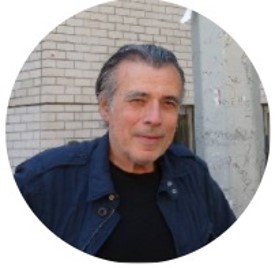
Wednesday, April 27, 2022; 4p – 5:15p EDT
Advanced Science Research Center Auditorium
85 St. Nicholas Ave
New York, NY 10031
FREE Admission & QA Session
Please register here for the event. For those unable to attend in person, zoom link will be emailed
Contact Name Ngee-pong Chang
Contact Phone
nchang@ccny.cuny.edu
Can AI be the next Picasso?
Arthur I. Miller
Emeritus Professor of History and Philosophy of Science
University College London (UCL)
AIs(Artificial Intelligence) are already creating works that we recognize as art. But does this make them truly artists? Can AIs possess the attributes of living beings even though they are alien life forms? If and when this is the case, their intelligence will no longer be ‘artificial’ but as real as ours. In my talk I will focus on the exciting art, literature and music already being created by artificial neural networks and consider the key issue of whether machines can be creative like us.
Arthur I. Miller is a CCNY Physics graduate who earned his Ph.D. from MIT. After faculty positions at the University of Massachusetts and Harvard, in 1991 he became Professor of History and Philosophy of Science at University College London. He is the author of a ground- breaking theory of creativity which applies to both humans and machines. He has written many critically acclaimed books, including the Pulitzer Prize-nominated Einstein, Picasso: Space, Time, and the Beauty that Causes Havoc; 137: Jung, Pauli, and the Pursuit of a Scientific Obsession; and The Artist in the Machine: The World of AI-Powered Creativity.
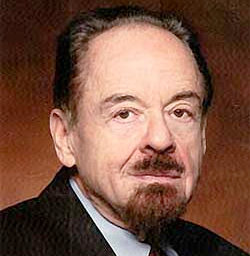
Harry Lustig
Credit: The American Physical Society
Last Updated: 10/16/2023 10:51
